
United Nations Security Council resolution 940, adopted on 31 July 1994, after recalling resolutions 841 (1993), 861 (1993), 862 (1993), 867 (1993), 873 (1993), 875 (1993), 905 (1994), 917 (1994) and 933 (1994), the Council permitted a United States-led force to restore President Jean-Bertrand Aristide and authorities of the Government of Haiti, and extended the mandate of the United Nations Mission in Haiti (UNMIH) for an additional six months.
The United Nations Mission in Haiti (UNMIH) was a peacekeeping operation carried out by the United Nations between September 1993 and June 1996. The Mission was reestablished (MINUSTAH) in April 2004, after a rebellion took over most of Haiti and President Bertrand Aristide resigned. This mandate ended in 2017, replaced by United Nations Mission for Justice Support in Haiti (MINUJUSTH), which saw the end of UN peacekeepers in Haiti after its ending in 2019.

Pakistan has served in 46 United Nations peacekeeping missions in 29 countries around the world. As of 2023, United Nations (UN) statistics show that 168 Pakistani UN peacekeepers have been killed since 1948. The biggest Pakistani loss occurred on 5 June 1993 in Mogadishu. Pakistan joined the United Nations on 30 September 1947, despite opposition from Afghanistan because of the Durand Line issue. The Pakistan Armed Forces are the fifth largest contributor of troops towards UN peacekeeping efforts, behind India and Rwanda.
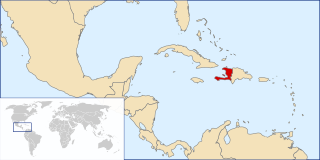
United Nations Security Council Resolution 841, adopted unanimously on 16 June 1993, after recognising the need for an urgent settlement to the situation in Haiti and the efforts of the Secretary-General of the United Nations Boutros Boutros-Ghali and the Secretary General of the Organization of American States João Clemente Baena Soares, the Council placed various international sanctions on Haiti.

United Nations Security Council resolution 854, adopted unanimously on 6 August 1993, after recalling Resolution 849 (1993) which concerned a deployment of military observers if a ceasefire was observed between Abkhazia and Georgia, the Council noted that a ceasefire had been signed and approved a dispatch of 10 military observers to the area to observe the implementation of the ceasefire.

United Nations Security Council resolution 856, adopted unanimously on 10 August 1993, after reaffirming Resolution 813 (1993) and welcoming a peace agreement signed, under the auspices of the Economic Community of West African States (ECOWAS), between the Interim Government of National Unity of Liberia (IGNU), the National Patriotic Front of Liberia (NPFL), and the United Liberation Movement for Democracy (ULIMO), the Council approved a dispatch of 30 military observers to Liberia.
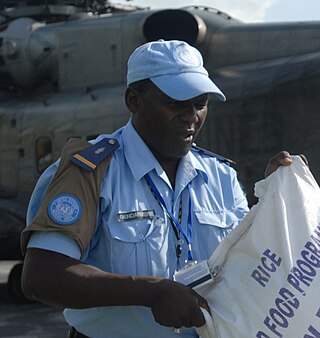
United Nations Security Council resolution 867, adopted unanimously on 23 September 1993, after recalling resolutions 841 (1993), 861 (1993) and 862 (1993) on the situation in Haiti, the council reiterated its position of protecting international peace and stability and established the United Nations Mission in Haiti (UNMIH).

United Nations Security Council resolution 873, adopted unanimously on 13 October 1993, after recalling resolutions 841 (1993), 861 (1993), 862 (1993) and 867 (1993), the council noted the continued obstruction of the arrival of the United Nations Mission in Haiti (UNMIH) and the failure of the Armed Forces of Haiti to carry out their responsibilities and therefore reimposed international sanctions against Haiti that were previously suspended.

United Nations Security Council resolution 898, adopted unanimously on 23 February 1994, after reaffirming Resolution 782 (1992) and all subsequent resolutions on Mozambique, the Council discussed the implementation of the Rome General Peace Accords and established a 1,144 strong police component of the United Nations Operation in Mozambique (ONUMOZ).

United Nations Security Council resolution 905, adopted unanimously on 23 March 1994, after recalling resolutions 841 (1993), 861 (1993), 862 (1993), 867 (1993), 873 (1993) and 875 (1993), on the situation in Haiti, the council extended the mandate of the United Nations Mission in Haiti (UNMIH) until 30 June 1994.

United Nations Security Council resolution 917, adopted unanimously on 6 May 1994, after recalling resolutions 841 (1993), 861 (1993), 862 (1993), 867 (1993), 873 (1993) and 875 (1993) and 905 (1994) on the situation in Haiti, the Council imposed further international sanctions on the country after the military authorities refused to implement the Governors Island Agreement to hand over power and instances of violations of human rights.

United Nations Security Council resolution 933, adopted unanimously on 30 June 1994, after recalling resolutions 841 (1993), 861 (1993), 862 (1993), 867 (1993), 873 (1993), 875 (1993), 905 (1994) and 917 (1994), the Council noted the deteriorating situation in Haiti and extended the mandate of the United Nations Mission in Haiti (UNMIH) until 31 July 1994.
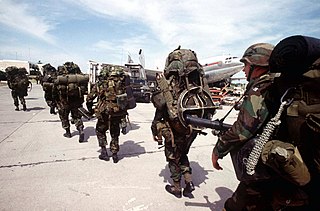
United Nations Security Council Resolution 944, adopted on 29 September 1994, after recalling resolutions 841 (1993), 861 (1993), 862 (1993), 867 (1993), 873 (1993), 875 (1993), 905 (1994), 917 (1994), 933 (1994) and 940 (1994), the Council affirmed its willingness to suspend sanctions against Haiti once the legitimate President Jean-Bertrand Aristide had returned following the removal of the military junta.

United Nations Security Council resolution 948, adopted on 15 October 1994, after recalling resolutions 841 (1993), 861 (1993), 862 (1993), 867 (1993), 873 (1993), 875 (1993), 905 (1994), 917 (1994), 933 (1994), 940 (1994) and 944 (1994), the Council welcomed the return of the legitimate President of Haiti Jean-Bertrand Aristide and lifted sanctions imposed on the country.

United Nations Security Council resolution 964, adopted on 29 November 1994, after recalling resolutions 841 (1993), 861 (1993), 862 (1993), 867 (1993), 873 (1993), 875 (1993), 905 (1994), 917 (1994), 933 (1994), 940 (1994), 944 (1994) and 948 (1994), the council noted the progress in Haiti and strengthened the advance team of the United Nations Mission in Haiti (UNMIH).

United Nations Security Council resolution 975, adopted on 30 January 1995, after recalling resolutions 841 (1993), 861 (1993), 862 (1993), 867 (1993), 873 (1993), 875 (1993), 905 (1994), 917 (1994), 933 (1994), 940 (1994), 944 (1994), 948 (1994) and 964 (1994), the Council discussed the transfer of responsibility from the Multinational Force (MNF) to the United Nations Mission in Haiti (UNMIH) and extended the mandate of UNMIH for a further six months until 31 July 1995.
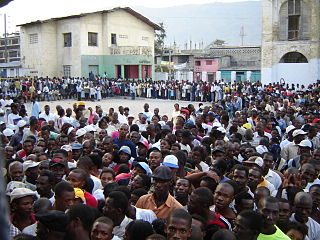
United Nations Security Council resolution 1007, adopted unanimously on 31 July 1995, after recalling resolutions 841 (1993), 861 (1993), 862 (1993), 867 (1993), 873 (1993), 875 (1993), 905 (1994), 917 (1994), 933 (1994), 940 (1994), 944 (1994), 948 (1994), 964 (1994) and 975 (1995), the Council discussed the election process and extended the mandate of the United Nations Mission in Haiti (UNMIH) for a further seven months.
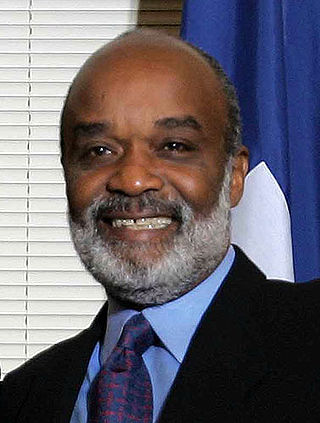
United Nations Security Council resolution 1048, adopted unanimously on 29 February 1996, after recalling resolutions 841 (1993), 861 (1993), 862 (1993), 867 (1993), 873 (1993), 875 (1993), 905 (1994), 917 (1994), 933 (1994), 940 (1994), 944 (1994), 948 (1994), 964 (1994), 975 (1995) and 1007 (1995) on Haiti, the Council extended the mandate of the United Nations Mission in Haiti (UNMIH) for four months until 30 June 1996, and reduced its size.

United Nations Security Council resolution 1063, adopted unanimously on 28 June 1996, after recalling all Security Council and General Assembly resolutions on Haiti and the termination of the United Nations Mission in Haiti (UNMIH) on 30 June 1996 in accordance with Resolution 1048 (1996), the Council decided to establish the United Nations Support Mission in Haiti (UNSMIH) to train a national police force and maintain a stable environment.

The United Nations Transition Mission in Haiti (UNTMIH) was a four-month mission which took place between 30 July 1997 and 30 November 1997. UNTMIH was the third United Nations peacekeeping operation in Haiti, and was established by United Nations Security Council Resolution 1123, adopted on 30 July 1997.
















